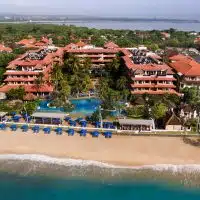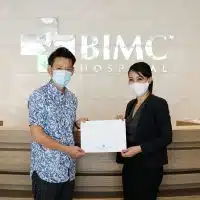EARLY DETECTION OF KIDNEY FAILURE IS VERY IMPORTANT
Any health system in the world should include simple methods for early detection of kidney disease. When indications are that you are at ‘increased risk’ of developing Chronic Kidney Disease (CKD), one simple method to measure your kidney function is to measure albumin in the urine by dipstick that detects protein in urine.
If you are at ‘increased risk’ and tick YES to any of the following:
- Are 60 years or older
- Are of Aboriginal or Torres Strait Islander origin
- Have diabetes
- Have a family history of kidney disease
- Have established heart problems (heart failure or past heart attack) and/or have had a stroke
- Have high blood pressure
- Are obese (Body Mass Index BMI – of 30 or more)
- Are a smoker
- ….. then you should ask your GP for a Kidney Health Check which includes a blood test, a urine test, blood pressure measurement and measurement of your Body Mass Index – BMI including height, weight and waist circumference.
Symptoms of reduced kidney function
- High blood pressure
- Changes in the amount and number of times urine is passed, e.g. at night
- Changes in the appearance of urine
- Blood in the urine
- Puffiness e.g. legs and ankles
- Pain in the kidney area
- Tiredness
- Loss of appetite
- Difficulty sleeping
- Headaches
- Lack of concentration
- Itching
- Shortness of breath
- Nausea and vomiting
- Bad breath and a metallic taste in the mouth
What can you do to keep your kidneys healthy – the golden rules
Keep fit and active
Increase daily physical activity as it helps reduce your blood pressure and reduces your risk of CKD.
Keep regular control of your blood sugar levels, blood lipids and anaemia
About half of people who have diabetes develop kidney damage, so it is important for people with diabetes to have regular tests to check their kidney function. Kidney damage from diabetes can be reduced or prevented if detected early. It is important to keep control of blood sugar levels with the help of doctor.
Monitor blood pressure, reduce if necessary – lower the blood pressure, slower your Glomerular Filtration Rate (GFR) declines
Although many people are aware high blood pressure can lead to a stroke or heart attack, few know it is also the most common cause of kidney damage. High blood pressure is especially likely to cause kidney damage when associated with other factors like diabetes, high cholesterol and cardiovascular disease.
Eat healthy and keep your weight in check
This can help prevent diabetes, heart disease and other conditions associated with CKD. Reduce salt intake – recommended salt intake is 5-6 grams of salt per day (a teaspoon). In order to reduce your salt intake, try to limit the amount of processed and restaurant food and do not add salt to food. It will be easier to control your intake if you prepare the food yourself with fresh ingredients.
Do not smoke
Smoking slows the flow of blood to the kidneys. When less blood reaches the kidneys, smoking limits the kidney’s ability to function properly. Smoking also increases the risk of kidney cancer by about 50%!
Do not take over-the-counter pills on a regular basis
Common drugs such non-steroidal anti-inflammatory drugs like ibuprofen are known to cause kidney damage and disease if taken regularly. Such medications probably do not pose significant danger if your kidneys are relatively healthy and you use them for emergencies only. If you are dealing with chronic pain such as arthritis or back pain, work with your doctor to find a way to control your pain without putting your kidneys at risk.
source: http://www.kidney.org.au
Dialysis Centre at BIMC Hospital, Nusa Dua (Opening soon!)
BIMC Hospital Nusa Dua is located on approximately one hectare of land right amongst luxury 5 star hotels and villas, the Bali Golf and Country Club, a shopping mall, restaurants and secluded beaches, conveniently located just 20 minutes from Bali’s Ngurah Rai International Airport.
BIMC Hospital Nusa Dua will incorporate various Centers of Excellence, firstly the 24 hour Medical and Emergency Centre dealing with all kinds of accidents and other emergency cases as well as with any general medical issue to be addressed to the international team of doctors and specialists. For this the medical team relies on a first-class infrastructure comprising fully equipped ambulances, an Intensive Care Unit, Day Procedure Units, various international standard Operating Theatres, comfortable Ward Rooms and private consultation rooms. Furthermore the new hospital will host new specialty services such as the Dialysis Centre, the CosMedic Centre and the Dental Centre.
The Dialysis Centre is designed to provide dialysis service using the latest Nipro’s high-tech instruments, all to be experienced in a dedicated Spa-style comfort environment, leaving no room for any concerns for quality or safety. The whole process is supervised by an Australian nurse with long-term experience in dialysis procedures.
For more information and reservation, please contact us:
BIMC Hospital, Nusa Dua
Blok D Kawasan BTDC, Nusa Dua, Benoa, Kuta Selatan 80363, Bali, Indonesia
Email: nusadua@bimcbali.com















